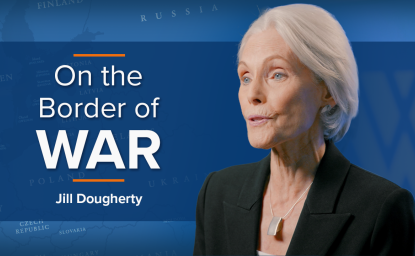A UN inquiry into whether Iran worked on making a nuclear bomb has hit a dead end due to lack of cooperation from Tehran, UN atomic watchdog chief Mohamed ElBaradei reported Monday.
He said his International Atomic Energy Agency also had new information that Tehran may have had foreign experts help in alleged experiments on how to set off an atomic bomb.
This is a major development after the dismantlement over the past few years of the nuclear smuggling network run by disgraced Pakistani scientist A.Q. Khan, as it shows an underground apparently continuing in the transfer of highly sensitive nuclear technology.
A senior official close to the IAEA refused to say from where the foreign experts came. He said, however, that the foreigners had "no relations to A.Q. Khan" and that there was "no indication that it would be state-supported expertise."
ElBaradei said in his report that the IAEA has a document "describing experimentation in connection with symmetrical initiation of a hemispherical high explosive charge suitable for an implosion type nuclear device."
And the agency has "obtained information indicating that the experimentation described in the document may have involved the assistance of foreign expertise," ElBaradei said.
But Iran is providing "no information at all" to answer crucial questions about whether it had in the past a secret program to make the uranium metal used in bombs, whether it had worked on how to fit a nuclear bomb onto a missile and whether it had carried out experiments on how to make an atomic bomb explode, the senior official who commented under condition of anonymity said.
The official said the IAEA investigation, which began in 2003 after 18 years of secret Iranian nuclear work were uncovered, has reached "gridlock," even if the Iranians say they are always open to talk.
"Iran so far has not been forthcoming in responding to our questions and we seem to be at a dead end there," the official said.
The United States leads Western states in expressing concern that Iran's program is a cover for developing nuclear weapons. Washington says that Iran stopped specific weapons work in 2003 but that its drive to make enriched uranium, which can be civilian nuclear fuel but also the raw material for an atom bomb, is still part of a military effort.
"Unless Iran undertakes as a measure of transparency . . . to resolve substantively the outstanding issues, the agency will not be in a position to progress in its verification of the absence of undeclared nuclear material and activities in Iran," ElBaradei's report said.
Diplomatic negotiations with Iran have also reached a dead end. The United States, Britain, France, Germany, China and Russia have offered Iran talks on economic and other incentives if it halts uranium enrichment, but Iran refuses to do this.
Tehran says its nuclear program is a peaceful effort to generate electricity. It says it has the right to do this under the nuclear Non-Proliferation Treaty (NPT).
The IAEA report said that Iran continues to expand its centrifuge cascades, in defiance of UN Security Council resolutions calling on it to stop enriching uranium.
Iran now has 3,820 centrifuges enriching uranium at its heavily bunkered underground nuclear plant in Natanz. This number is up from 3,000 operating as of last May, the report said.
Production that was a little over one kilogram of low enriched uranium a day is now up to 2.5 kilograms a day, the senior official said. The report said Iran is continuing to expand its main facility at Natanz and is above-ground at the site pursuing work on developing a more powerful and efficient centrifuge.
Iran had made a total of 480 kilograms of low enriched uranium by August 30, an amount equal to either a half or a third, according to different calculations, of what is needed to refine into enough highly enriched uranium for one bomb.


